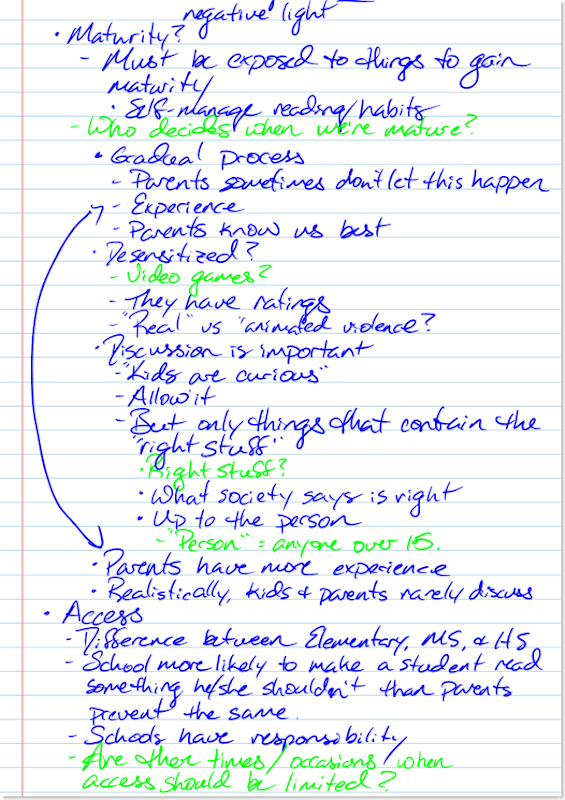We will be discussing DeLillo’s White Noise through chapter 34 on Monday. We will write over this in about a week, so please keep up with your reading journals.
Another great discussion (From the Board below) over the censorship! The debate was heated at times, so we’ll be writing our own argumentative articles this weekend. By now you are all familiar with the basic structure of an argumentative article, but here’s a quick outline to help you with your writing:
- Know your position. Begin with a basic argument, such as "Apples are good."
- Begin gathering support for your basic argument.
- "Apples are healthy"
- "Apples are all-American"
- "Apples are portable"
- "Apples can be eaten many different ways"
- Then, begin supporting each claim, adding statistics and quotations from other sources as necessary.
- "Apples are healthy"
- Food and Drug Administration
- "Apples are all-American"
- All-American Apple Council
- "Apples are portable"
- Relevant personal anecdote
- "Apples can be eaten in many different ways"
- Recipes
- How-to guides
- "Apples are healthy"
- After that, make sure your sources are credible and your claims are relevant and logical.
"Apples are all-American"(Appeal to emotion, but not a major point.)All-American Apple Council(Biased source)
- After you are certain you have a logical argument, begin writing your article. Draw your audience in with a "hook"—something to draw them in, give them interest in your article. (Look over your previous articles for examples.) Also, because this is such a heated topic, don’t forget to appeal to those on the other side of the issue.
Post questions below for the good of all.
Legend: Black: from the articles, Blue: From you, Green: From me.


